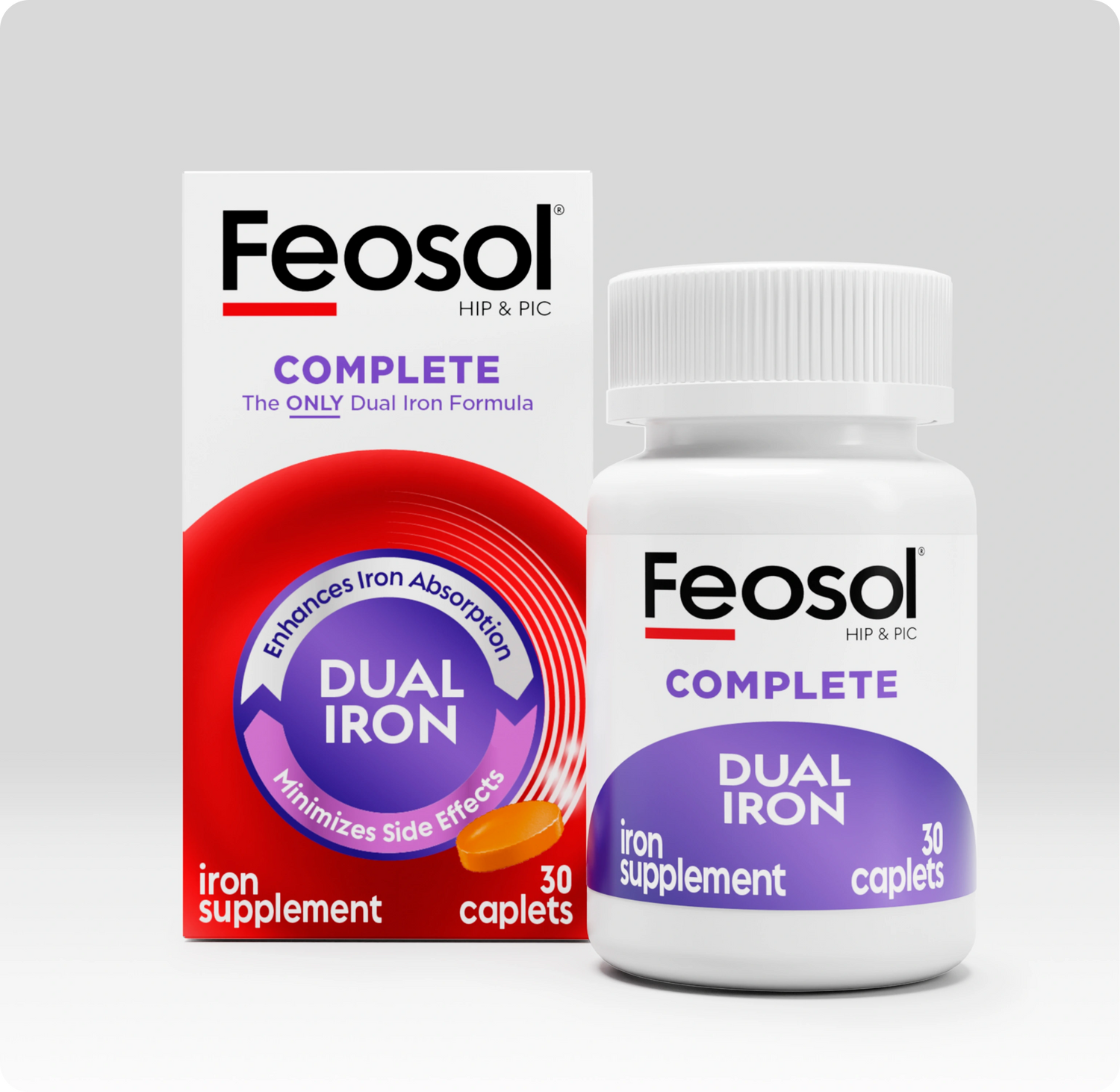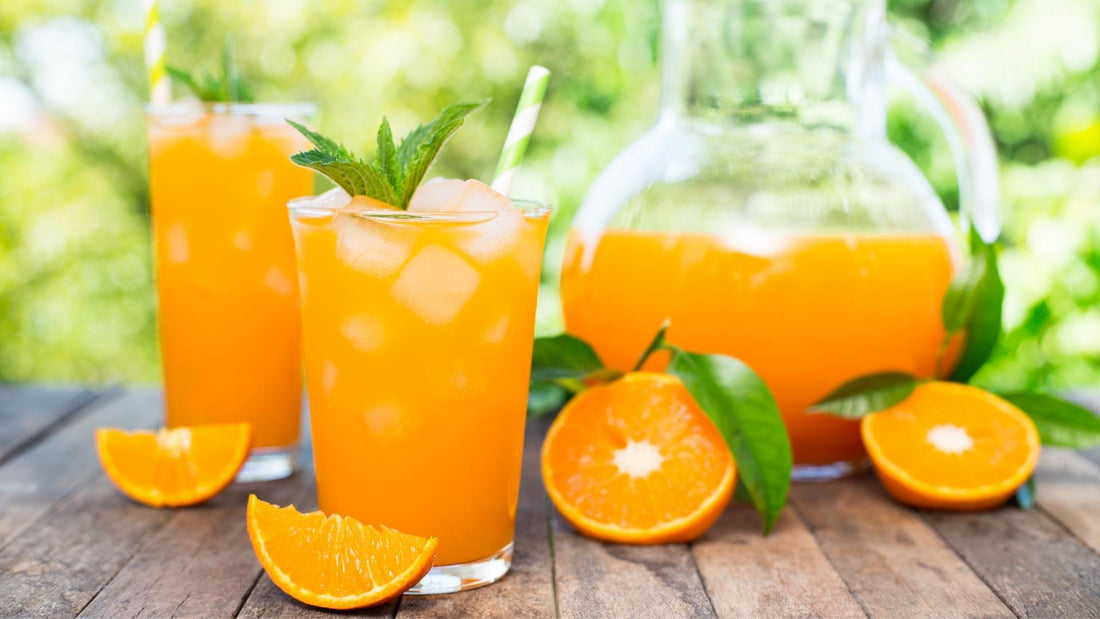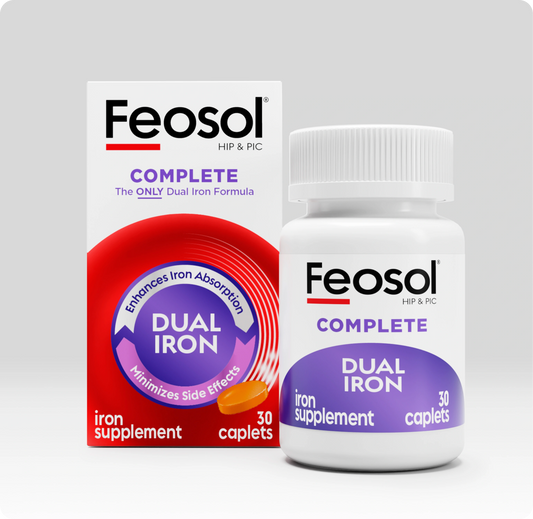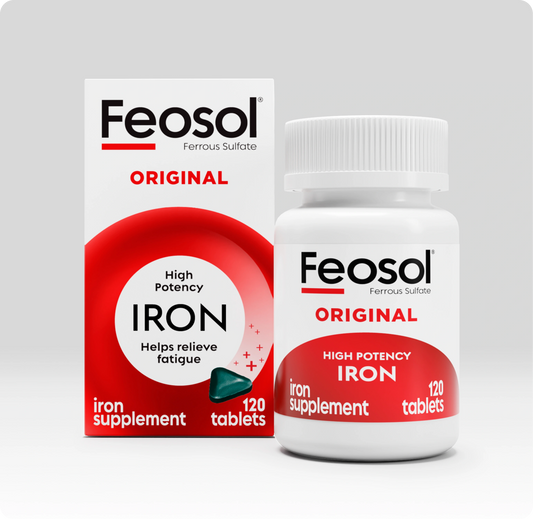Ideally, most iron supplements should not be taken with food. The reason you should take iron on an empty stomach without food is that an acidic stomach helps with iron absorption.
Unfortunately, many people find that iron upsets their stomachs, so they take iron with meals to try and offset side effects such as nausea. Your doctor might also recommend that you take your iron supplement with a glass of orange juice because vitamin C improves the absorption of iron.
Factors that Affect Iron Absorption
Items that can decrease the body’s absorption of non-heme iron include:
- dietary or supplemental calcium
- caffeine
- some of the proteins found in soybeans
- dietary fiber
- phytates, found in legumes and whole grains
- plant-based compounds called polyphenols, including tannins (found in tea, wine, fruits, vegetables, nuts)
Items that can increase the body’s absorption of non-heme iron include:
- heme iron (found in meat, poultry and fish)
- vitamin C (orange juice, citrus fruits).
As you can see from the list above, there are many food items that can decrease the absorption of non-heme iron, from fruit and nuts to dairy and whole grains! That makes it very difficult to take your iron supplement with a big glass of milk and a hearty bowl of cereal.
One exception to the rule is Feosol Complete with Bifera. Because of its unique dual-iron formula that includes both heme and non-heme iron, you do not have to avoid food when you take it. You can take it any time of day – breakfast, lunch or dinner – with or without food.






